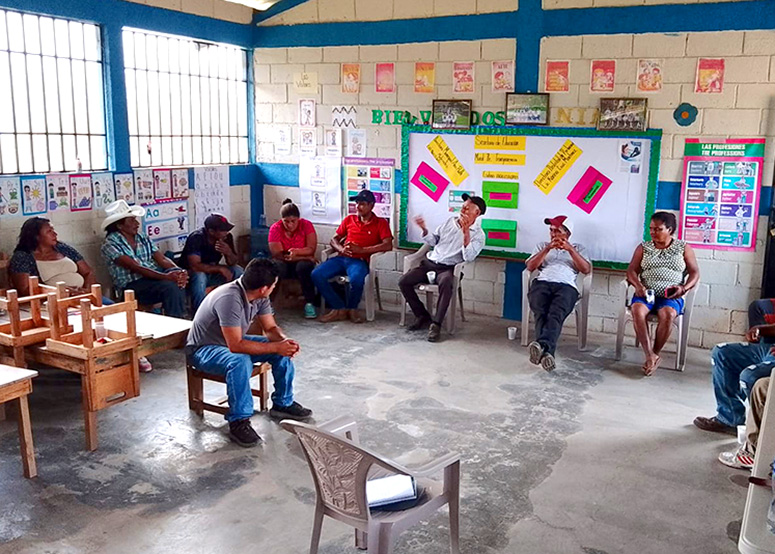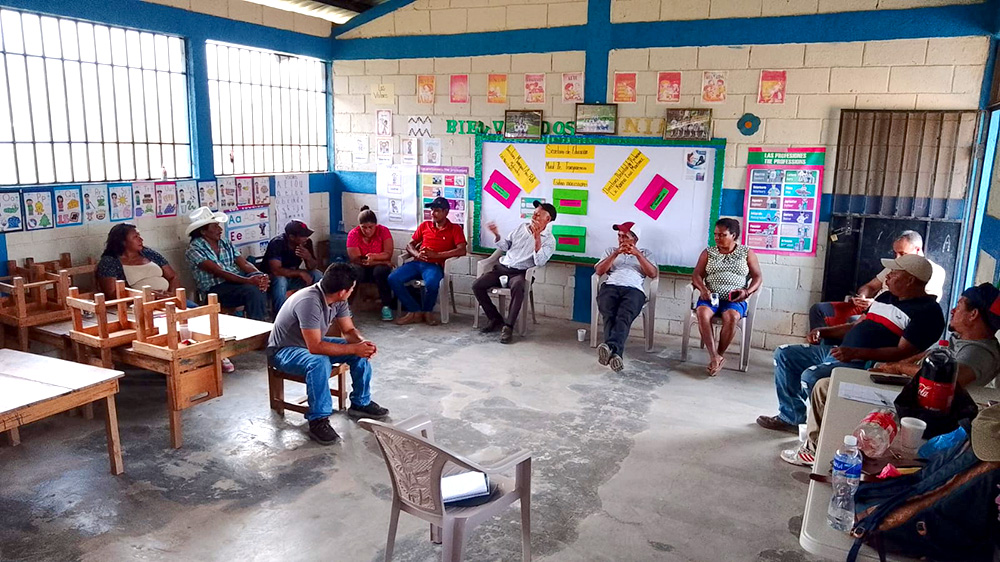


A landmark meeting between three indigenous Tolupan tribes and Yoro Biological Corridor (YBC) proponent Mesoamerican Development Institute (MDI) took place this month on May 2, 2024 in El Saliter Guave, Yoro, Honduras.
The three different Tolupan tribes from areas of central Honduras included:
- Tribu Ojo de Agua Lagunitas
- Tribu Subirana
- Tribu El Tablon
This meeting proceeds a number of previous meetings (such as this initial one) between Tolupan members and YBC proponents. The fact that there were three tribes present this time is showing that they are interested and actively engaging in new ideas and solutions to the many issues they face; including discrimination, poverty, forced land evictions, loss of cultural values, and lack of government support and basic medical care.
Members of all three tribes showed an interest in working with MDI on YBC activities, with particular interest in providing native plant nurseries to support Integrated Open Canopy™ (IOC™) reforestation efforts.
Learn About the Tolupan People
The Tolupan population are an indigenous ethnic group currently comprised of approximately 20 thousand individuals. “They are made up of 28 tribes distributed in six municipalities in the department of Yoro, plus two tribes who emigrated in the last century to the mountain of La Flor, municipality of Orica, Francisco Morazán.” (www.redhonduras.com)
During pre-Hispanic times, the Tolupanes constituted hunter-gatherer group that was eventually exploited by Spanish conquerers and forced to move to more remote, higher elevation mountainous areas of the country.
“There is a significant scholarly literature about the history and culture of the Tolupanes. In colonial times, the Spaniards called them Xicaque or Jicaque, by which they meant “savage,” “barbarous,” or “infidel,” and treated them as enemies to be subdued. But an alternative interpretation—that Xicaque is derived from a Nahuatl word meaning “strong or ancient person”—provides an apt description of the Tolupán people.” (www.culturalsurvival.org)
The Tolupanes more recent history involves struggles to protect lands granted to them; forests from being taken over by government and corporate resources projects.
“Tolupán communities have suffered a long history of government neglect, broken promises, and attempts to co-opt their leaders and corrupt their organizations.” (www.culturalsurvival.org)
And while some are more traditional in culture, rarely interacting with those outside of their tribe, others are more modern and some of the tribe leaders are now very well connected to international organizations and travel to Tegucigalpa quite regularly to meet with various government offices.
Most recently, Tolupan people in Yoro face a medical crises having to walk hours for basic health services and only to be given nothing but aspirin. (www.contracorriente.red)